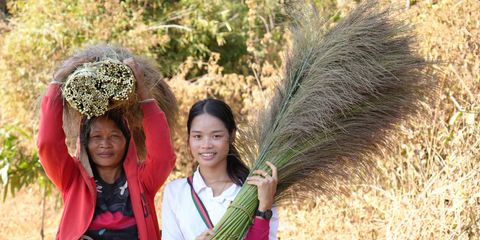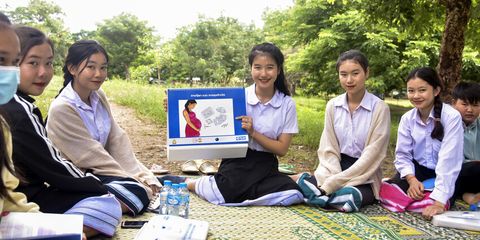Serth, a determined father of 2, returned home to Pha Oudom District, embracing the local broom grass trade and community ties to build a secure future for his family.
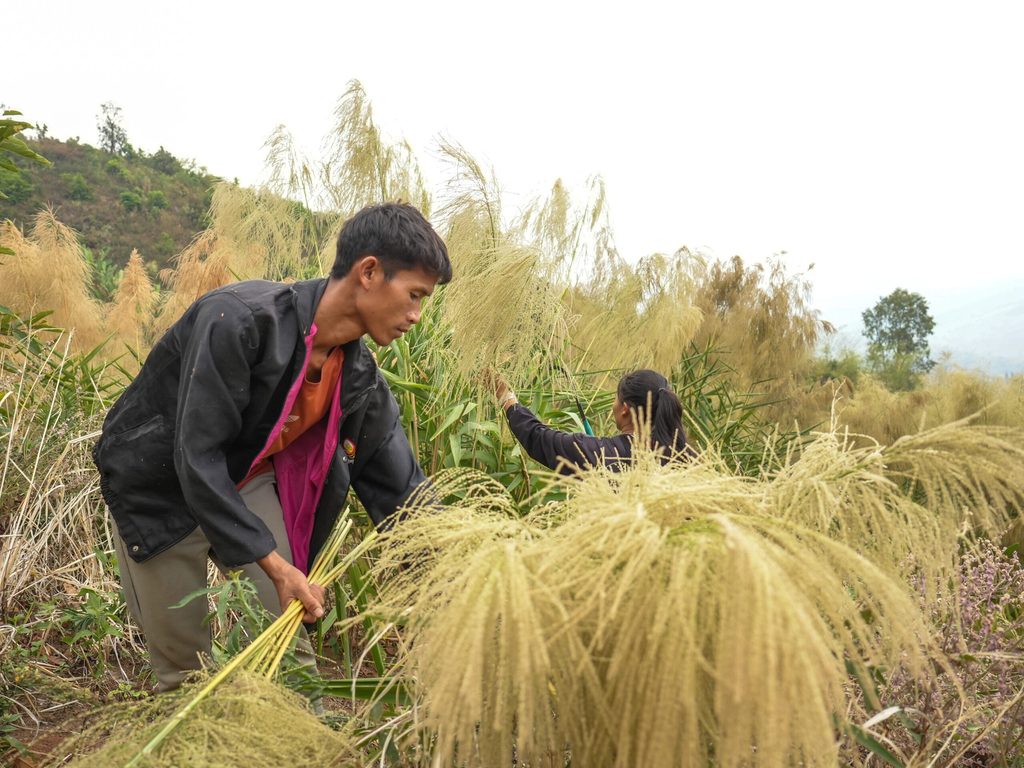
“I built my trade from the ground up—turning broom grass flowers into a stable future for my family.”
Serth
Serth embraced the opportunity to become a local merchant, ensuring a secure future for his family. He began purchasing broom grass flowers from his father-in-law and neighbours, utilising his strong community ties to expand his trade and establish a dependable stream of income. “I built my trade from the ground up—turning broom grass flowers into a stable future for my family,” Serth shares.
Championing family and enterprise
Balancing craftsmanship with commerce, Serth allocated 500kg of broom grass flowers for producing handcrafted brooms, which he sold at his own shop and in the district market. The remainder of his stock was traded at a wider district level, expanding his business reach. His journey reflects resilience, resourcefulness, and the power of local enterprise in transforming livelihoods.
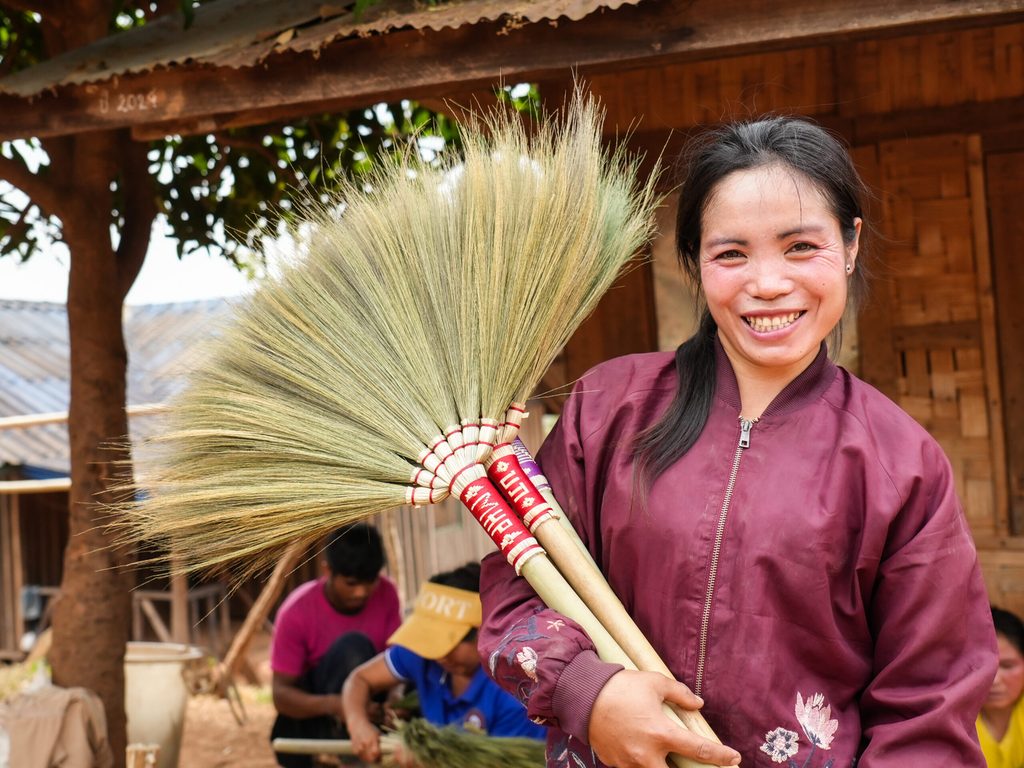
“I am happy to spend quality time with my family whilst earning money every day.”
Jan.
Serth lives with his wife, Jan, and their 2 children in a close-knit community. Jan rises early each morning to greet the day, while other villagers set off for the highland rice fields or broom grass plots. Before the children leave for school, she lovingly prepares them for the day and opens their small family shop.
“I am happy to spend quality time with my family whilst earning money every day,” Jan explains warmly. In their partnership, Jan diligently weaves brooms from the reserved broom grass flowers, while Serth actively sources additional flowers—even assisting at his parents-in-law’s plot—demonstrating a balanced blend of entrepreneurial spirit and familial responsibility.
Leaving behind traditional cultivation
The couple made a conscious decision to move away from highland rice cultivation—a labour-intensive practice requiring nearly 10 months a year of strenuous work and shifting methods that often strain the family’s resources and time. “There are many tasks even before the rice begins to grow, and I do not wish to contribute to deforestation.” Serth explains with quiet conviction.
Jan echoes his sentiments, adding, ‘It is hard work, and we hardly have any time for our children’s education.’ Faced with the uncertainties of the weather, particularly droughts that reduce yields, they recognised that venturing into small business offered a more sustainable and personally rewarding way of life.
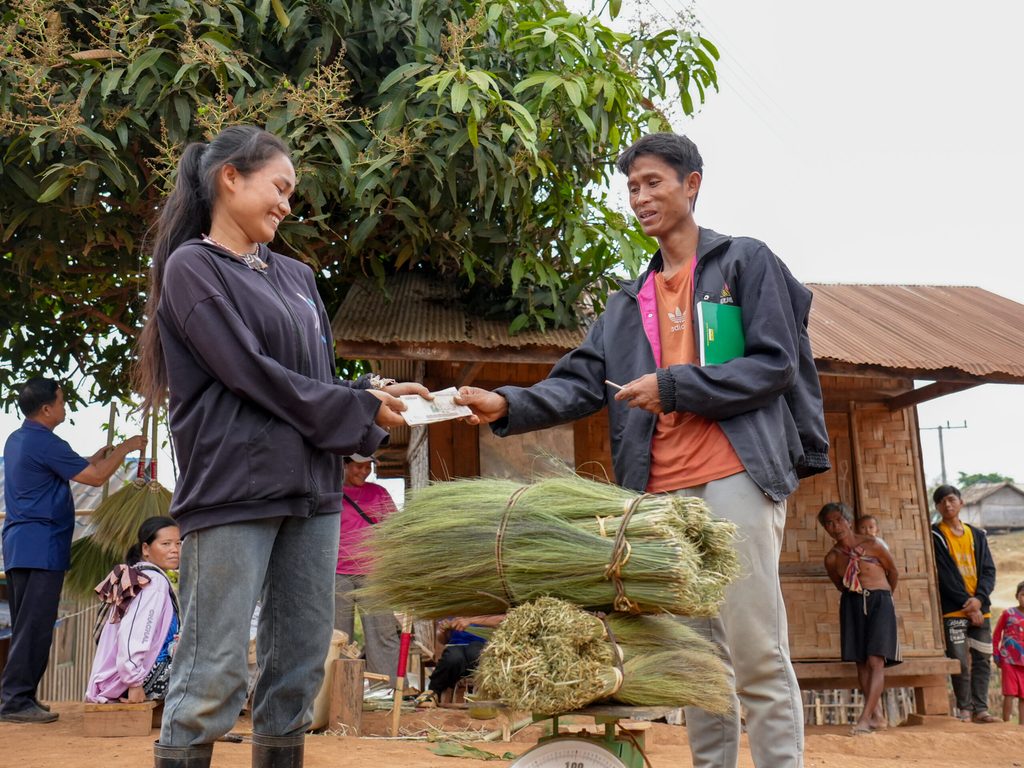
“I don’t want to contribute to deforestation.”
Serth.
Last year, Serth’s business ventures flourished when he purchased 5 tonnes of broom grass flowers. His shrewd trading earned him roughly USD 1,500 from the flowers alone, with an additional USD 600 generated from selling the finished brooms at the district market—the financial achievements standing as a testament to his determination to secure a brighter future for his family.
Looking ahead, Serth has set himself an ambitious five-year goal: he aspires to own his very own lorry. This investment would enable him to transport a larger volume of broom grass flowers, brooms, and other valuable non-timber forest products he procures, thereby streamlining his trade within the provincial market. This forward-thinking ambition underscores his commitment to expanding his business and supporting his family more effectively.
Empowerment through trainings
Both Serth and Jan attended trainings provided by Plan International Laos and the Meaying Huamchai Pattana Association, in collaboration with the District Agriculture and Forestry Office. These sessions covered modern planting techniques for broom grass and skilful methods for broom making.
“I don’t wish to promote deforestation, and I apply the techniques I learnt to support my father-in-law’s broom grass plot,” notes Serth, his pride evident in his voice. Jan adds, “I take pleasure in creating brooms from the flowers, which is not just a business but a means to enhance our community’s wellbeing.”
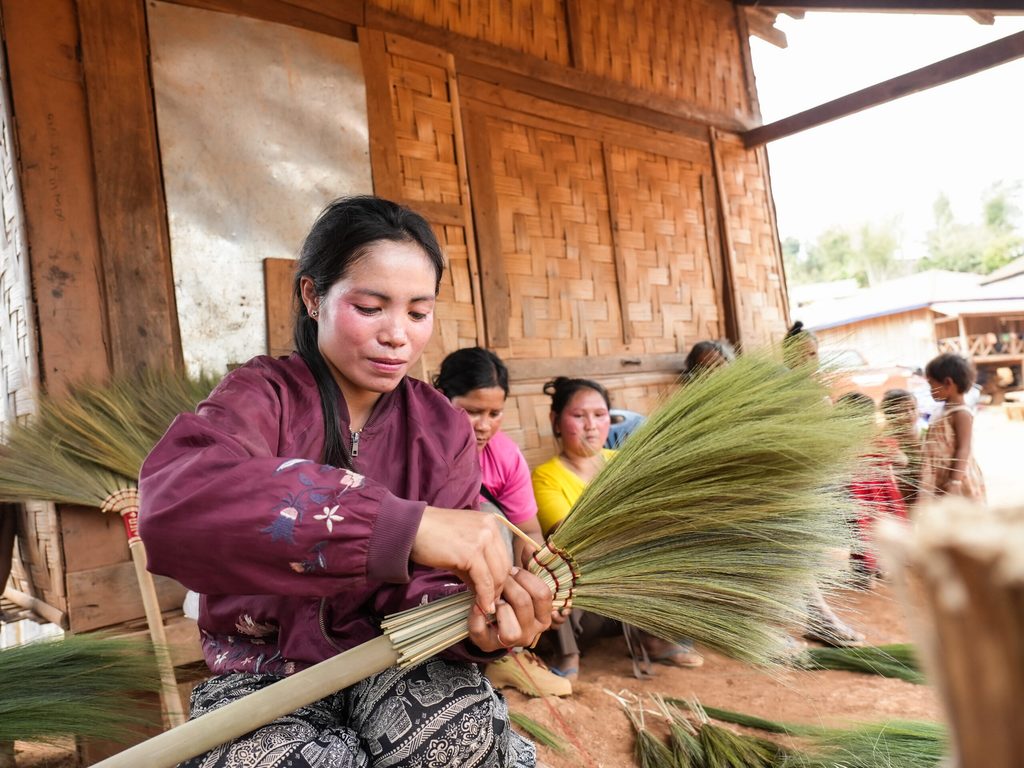
Having once worked in the challenging conditions of the Golden Triangle, where long separations from his family were the norm, Serth now embraces a way of life that keeps him close to those who matter most. He remains resolute in his decision never to return to that life, confident that opportunities abound right in his home village. ‘Life here presents endless possibilities. I am happy living this way,’ he affirms.
Through their collective efforts and with support from organisations such as KOICA, Plan International Korea, and local partners, Serth and Jan have become symbols of progressive change in Bokeo Province. Their journey is not only a testament to overcoming traditional hardships but also an inspiring example of how community-focused training can transform lives—even in the most remote regions.
In 2024, broom products from their community achieved certification and were officially included in the ‘One District, One Product’ initiative of Pha Oudom District—a significant milestone that recognises their dedication and impact.

